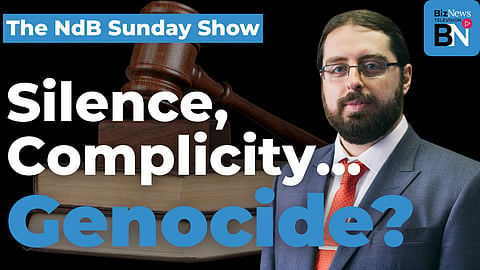Adv. Mark Oppenheimer: Is the ANC liable for Genocide? - The NdB Sunday Show
In this edition of the NdB Sunday Show, Advocate Mark Oppenheimer of the Johannesburg Bar tells Chris Steyn “there may very well be an argument that the South African government itself has been either complicit or silent in the face of genocidal speech”. He was speaking after President Cyril Ramaphosa and former Foreign Minister Naledi Pandor made it clear that South Africa would press ahead with its ICJ genocide case against Israel - despite the Middle East Peace Pact. “…it would be interesting if the Israelis were to...take South Africa to court in a parallel piece of litigation." Oppenheimer commends the visit to Israel by two granddaughters of the late President Nelson Mandela, and their balanced view in contrast with their cousin Mandla who was detained and deported after the flotilla intercept. As for the Madlanga Commission, Oppenheimer fears that South African are suffering from “commission fatigue” - and warns: “…the ANC government might want to bear in mind that there's only so much you can do to the poor and the oppressed before they rise up against you and... slit your throats or do other terrible things to you as we've seen in other countries abroad.” Oppenheimer, who also specialises in municipal law, shares his thoughts on the Jo'burg Mayoral race - and shares his “unusual way of solving” the crisis in the City. He also gives the backstory to the case of Professor Adam Mendelsohn at UCT which stands to lose as much a billion rand in funding because of its anti-Israel stance.
Sign up for your early morning brew of the BizNews Insider to keep you up to speed with the content that matters. The newsletter will land in your inbox at 5:30am weekdays. Register here.
Support South Africa’s bastion of independent journalism, offering balanced insights on investments, business, and the political economy, by joining BizNews Premium. Register here.
If you prefer WhatsApp for updates, sign up to the BizNews channel here.
Watch here
Listen here

